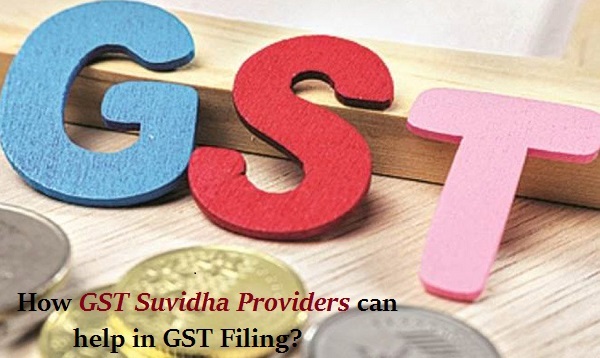GST (Goods and Services Tax) was implemented on July 1, 2017. Businesses don’t really have a good idea of how to file GST. This is where GSPs help businesses. GSP stands for GST Suvidha Provider. These government registered entities act as enablers for businesses to comply with the intricate laws of GST with the help of their software or their web platform. This platform is a medium which is nothing but an online compliance platform. The term “GSP” was coined by Goods and Service Tax Network (GSTN), which is a private company who 49.5 per cent stake is held by the central government and state government collectively.
This organisation’s main objective is to develop as well as maintain IT infrastructure for implementing GST in India. It is again in line with the Digital India initiative, which wants to convert the system, especially the government works as well as tax compliance implementation into a paperless format.
Understand the GSP Mechanism – How it actually works?
To get a closer look at the entire system of tax compliance and at the same time get a closer look at the entire system, here is a schematic description of the entire work flow. First the tax payer who needs to pay the GST to the income tax department. But how can it be done? This is where the work of GSP ecosystem comes into play. There is an entire system of web portal, customized applications, ERP solution, accounting package, and mobile application. The tax pay has to first get registered and generate Challan. In the next step comes the three step function including Invoice Uploading, return filling, and ledger. Once these are done, the next step involves transfer of these to the GSP-GST server, and then to the GST server.
Understanding with an Example
The best way to understand the entire GSP ecosystem, it is important to understand with the help of an example –
Suppose, there is a company named XYZ Limited, which is a private MNC company. Let us assume that this company runs operation on SAP ERP. This system respects Purchases and Sales, which are maintained in the system. At the end of every month, ERP generated reports are attached with tax return and then uploaded on the portal of the government.
Government is now trying to chalk out a single as well as automated workflow. According to this initiative, the ERP companies will be able to build an interface with the portal of government for all kinds of compliance related to GST and that can be done directly through their software.
However, it should be said at this point that GSP can be any technology company or even a start-up and not essentially an ERP company. However, the only requirement is that company must have expertise in building up of web applications. 34 companies have been shortlisted till now in the first round of license allotment.
What is the Eligibility Criteria for Providing License to GST Suvidha Provider (GSP)?
GSP license can be given to any company that is a registered in India under the various sectors including Information Technology (IT), ITES (Information Technology Enabled Services), Insurance sector, Financial Services, and Banking. There are strict eligibility criteria that a GSP applicant has to meet. Once an applicant company fulfills eligibility criteria, the entity needs to sign contract with Goods and Service Tax Network for becoming an authorised GSP. Once the contract is signed, the GSP will be allocated a unique license key so that they can access the system of Goods and Services Tax.
Some of the most important eligibility criteria are given below –
There are different kinds of eligibility criteria including financial strength, capability demonstration, technical capabilities, and many more.
In the first batch, the most important financial strength criteria include paid up or raised capital of at least Rs. 5 crore along with minimum Rs. 10 crore average turnover during last three financial years. The technical capabilities should include aspects such as backend infrastructure, adequate IT infrastructure (either owned or outsourced) for carrying out at least 1 lakh GST transaction every month. The company must follow data security measures that are in accordance with the IT Act. Moreover, the company must be adequately equipped with data security measures in accordance with the IT Act.
In the Batch 2, the eligibility criteria for GSP criteria have been relaxed a bit. In the financial criteria the paid up or the raised capital has been earmarked as at least Rs. 2 crores. The average turnover requirement has been earmarked at least 5 crores in the last three financial years. The technical capabilities have been kept more or less same.
Conclusion
From July 1, 2017, the GSPs have started working with the tax payers and help them in every step of registration, return filing, and paying taxes.






 Live Chat
Live Chat
Dear Taniya,
Thanks for valuable information shared by you. It is one of the common taxation processes in place of Indirect tax which is easing lives of people for filing GST. I use the service of Alankit because they help me here in a very reasonable rate.
Regards
Shubham
thanks for sharing information GST Suvidha Providers can help in GST Filing. Continue writing and keep sharing